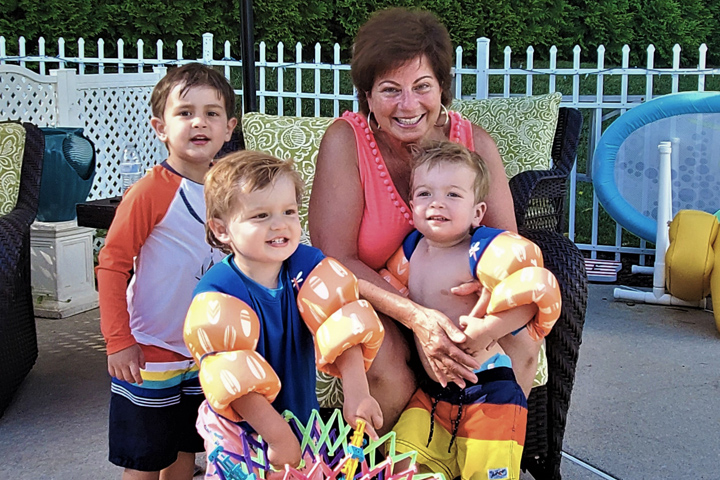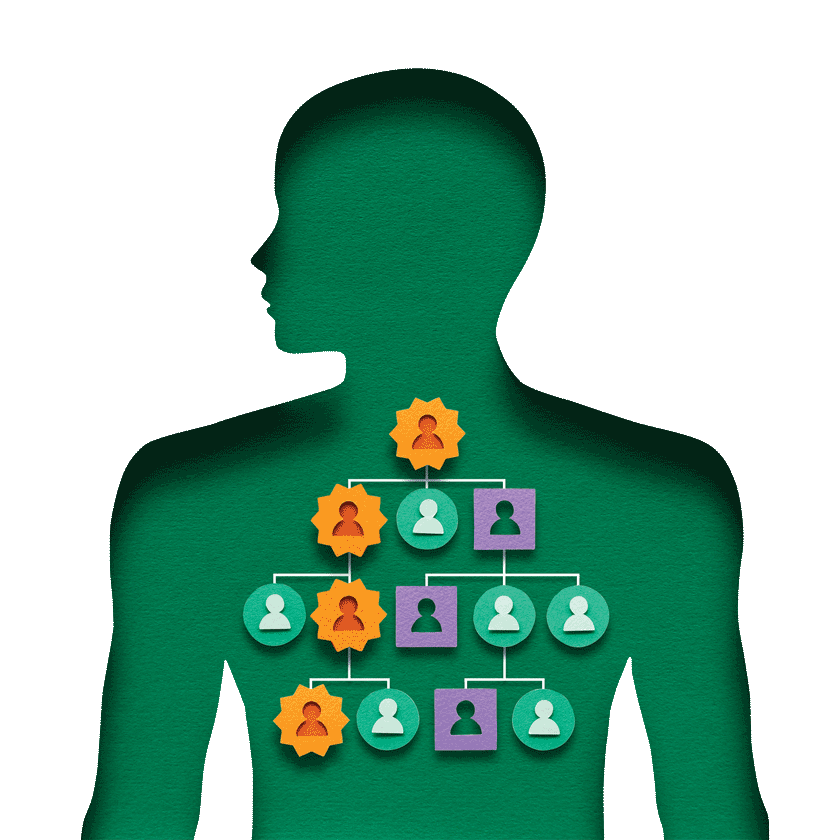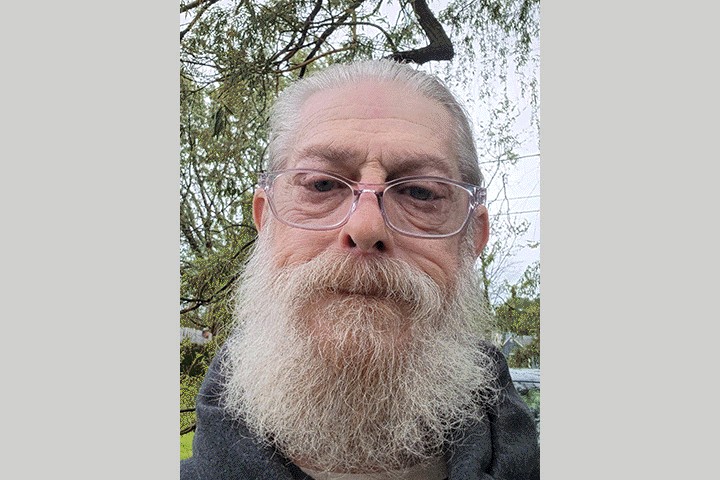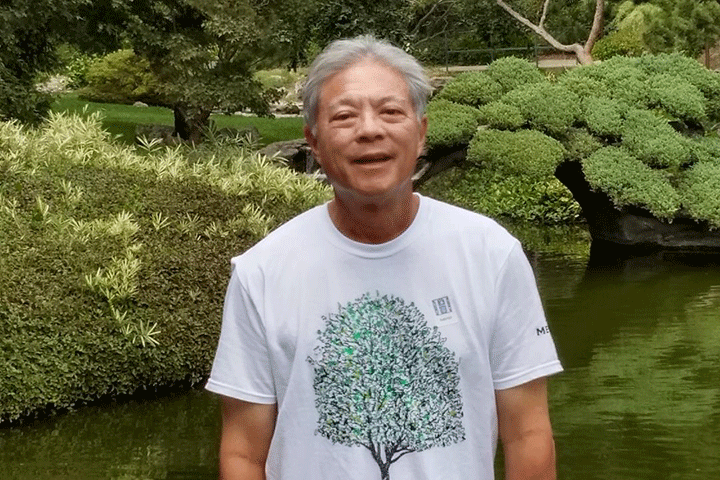The Value of Molecular Profiling and Genetic Testing

- Stage IIb pancreatic cancer diagnosed
- Pancreatectomy surgery, then chemotherapy with FOLFIRINOX
- Molecular profiling shows BRCA1 mutation
- Metastasis leads to clinical trial for immunotherapy and PARP inhibitor
In March of 2018, I began to experience severe back and abdominal pain that was debilitating.
I instinctively knew something was wrong and aggressively pursued several appointments with my physician as well as a CT scan and MRI. In April I received my diagnosis: pancreatic cancer.
The diagnosis rocked my world and led me to find Dr. Harish Lavu and Dr. Charles Yeo, the best surgeons at Jefferson University Hospital (Philadelphia) to perform a distal pancreatectomy and splenectomy. I was fortunate that my cancer was at stage IIb at that time. After the surgery, I learned my tumor was 4.1 cm (larger than the 2.7 cm originally anticipated) and was comprised of adenocarcinoma, a very aggressive type of cancer.
First Treatment Steps
During my surgery, 12 lymph nodes were removed, and three were found to have cancer cells. Six weeks after surgery, my treatment team at Jefferson, including Dr. Amy Mackenzie, my oncologist, recommended I begin six months of FOLFIRINOX chemotherapy to prevent the cancer from spreading. There were many unpleasant side effects from the FOLFIRINOX, including nausea, loss of appetite, fatigue, gastric upset, hair loss, neuropathy, and overall decrease in activities of daily living. After six months of this aggressive chemotherapy regimen, my CT scans and blood work indicated the absence of cancer. I felt extremely fortunate that the treatment worked but was mindful of the fact that this cancer frequently returns, and it did.
With the help of Jefferson’s Kimmel Cancer Center and the Know Your Tumor® program at PanCAN, I took advantage of molecular profiling of my tumor tissue. Albeit very technical, this information was very informative as I learned that my tumor had a BRCA1 mutation. The report also included a personalized list of relevant clinical trials, including one for patients with my particular mutation. The report also listed clinical trials in my region. As a resident of Newark, Delaware, I was within an hour of the city of Philadelphia, where I received my initial surgery and subsequent clinical trial.
Cancer Returns
My remission period lasted six months before I learned that my cancer had returned and metastasized to my liver, peritoneum, and the surgical bed of my remaining pancreas. The disease was now stage IV. Fortunately, during my remission period, I had germline testing to determine if this cancer was something my children and grandchildren could inherit. Within several weeks, I learned I was negative for any germline inherited characteristics for pancreatic cancer. Simply stated, there is no known cause for my cancer.
As a 59-year-old wife, mother of three, and grandmother of three, I was not ready to surrender to this devastating disease. I have more life to live! I was determined to inquire about clinical trials mentioned in my Tumor Report. I had been following a trial at Penn Medicine Abramson Cancer Center that was appropriate for my situation. In July 2019, I contacted Penn Medicine to inquire about becoming a participant in a PARP inhibitor/immunotherapy clinical trial. Although I was a candidate for this study, I needed four more months of FOLFIRINOX to slow the growth of the cancer before beginning the trial. Once again, I experienced many nasty side effects from this chemotherapy that I needed in order to safely enter the study.
Tumor Testing Leads to Clinical Trial
In January 2020, I was accepted into the clinical trial at Penn that combines targeted therapy and immunotherapy. The combination of ipilimumab (immunotherapy) and niraparib (PARP inhibitor) has been my treatment modality for over six months now. The study is being financed by Bristol Myers Squibb and Tesaro, Inc. (now part of GSK) and my treatment is being monitored by my oncologist, Dr. Thomas Karasic, who is part of the investigational team of this study.
I have experienced side effects, the worst of which was a rash that eventually faded, fatigue, and an increase in blood sugar. Presently, these side effects are managed. This treatment has positively impacted my quality of life and overall outlook on my disease. I have reached out to others in this study and have formed friendships and support.
There isn’t a day that goes by that I don’t count my blessings that I was a candidate for surgery as well as this targeted therapy. And my family has been my greatest source of support and strength.
I have begun to write a book about my journey in hopes to inspire and support others going through a cancer diagnosis. I remain realistic about current survival rates among those of us with pancreatic cancer but have no plans for giving up the fight. I believe that the medical research and advocacy of organizations like the Lustgarten Foundation will continue to fight this disease. Let’s Win!
Six months after her story was published, Gina passed away. Her participation in a clinical trial helps the next patient. We offer our deepest sympathy to her family.







